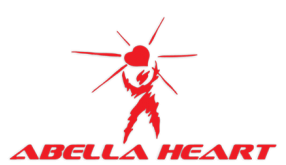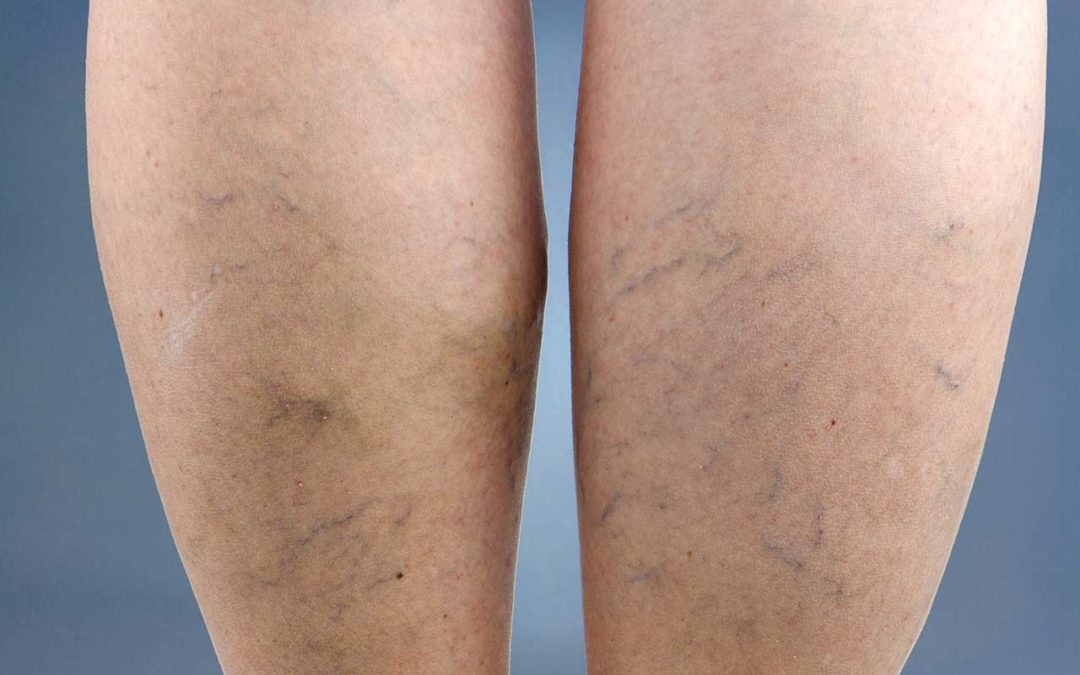Varicose veins, usually located in a person’s legs, are purple-blue veins which become swollen and twisted with pooling blood due to poor circulation. Varicose veins are a condition caused by a problem with the flow of blood from the extremities back up to the heart. As a result, many individuals who have varicose veins or who are at risk of developing them worry that varicose veins could be related to or a symptom of cardiovascular disease. If you have varicose veins, you can put your worries to rest. Although varicose veins can be unpleasant to look at and cause discomfort, they indicate a circulatory problem – not the presence of a heart problem or cardiovascular disease.
What Should Concern You About Varicose Veins
While varicose veins do not indicate heart disease, they do come with health risks and symptoms of their own. In addition to their appearance, varicose veins cause sufferers pain, discomfort, itching, cramping and a feeling of heaviness in the legs. When left untreated, varicose veins also put individuals at a higher risk of suffering more serious complications, such as:
- increased pain and swelling
- inflammatory conditions of the veins
- obstructed blood flow
- blood clots (deep vein thrombosis)
- pulmonary embolism
Though heart disease and varicose veins are unrelated, individuals who suffer from both conditions are at an even higher risk of serious health problems, such as infections and swelling.
Understanding the Connection: Vein Disease and Heart Disease Risk Factors
When exploring the risk factors for vein disease, it’s essential to note the overlap with factors contributing to heart disease. Here’s a closer look at what you should consider:
Key Risk Factors for Vein Disease
Obesity: Carrying excess weight puts additional pressure on veins, hindering blood circulation.
Inactivity: A sedentary lifestyle can weaken circulation, increasing the risk of developing varicose veins and other vein-related conditions.
Poor Diet: Diets high in salt and lacking in essential nutrients can exacerbate vein issues by causing fluid retention and weakening vein walls.
Family History: Genetics can play a significant role; if vein disease runs in your family, your risk may be higher.
Age and Gender: As we age, the risk of vein disease increases, and women are generally more susceptible due to hormonal influences.
Relationship to Heart Disease
Many of the factors leading to vein disease also contribute to heart disease. For instance:
Both obesity and physical inactivity not only strain your veins but also increase the likelihood of developing hypertension and cardiovascular issues.
A poor diet impacts both systems by contributing to high cholesterol and blood pressure, placing strain on heart and vein functionality.
Taking Preventive Measures
To mitigate these risks, consider incorporating the following lifestyle changes:
Regular Exercise: Engage in activities like walking or swimming to boost circulation and strengthen veins.
Balanced Diet: Aim for a diet rich in fruits, vegetables, and whole grains while reducing salt and unhealthy fats.
Weight Management: Maintaining a healthy weight can significantly reduce the potential impact on your veins and heart.
By addressing these shared risk factors through mindful lifestyle choices, you can optimally support both your venous and cardiovascular health.
Cardiovascular Care and Varicose Vein Treatment
Although varicose veins aren’t an indication of cardiovascular disease, individuals with varicose veins should still pay attention to the health of their hearts and cardiovascular systems. Be prepared and proactive by knowing the signs of heart attacks.
At Abella Health, we treat the whole person but specialize in cardiovascular health and varicose veins. We address these issues through various methods of treatment, considering what has caused them and what they indicate for your future health. Make an appointment with Abella Health today.
“Make an appointment with Abella Health today. At Abella Health, we specialize in the treatment of varicose veins and other related venous conditions such as spider veins, Restless Leg Syndrome (RLS), venous ulcers, and more. Our expert vein specialists understand that vein disease is progressive and symptoms can worsen over time. Varicose veins are a sign of vein disease and can lead to worsening symptoms if left untreated. Fortunately, there’s no need to suffer any longer. Our empathetic and skilled doctor is ready to help. That’s why we offer a variety of non-surgical, office-based procedures designed to quickly alleviate pain and discomfort. These treatments are efficient, generally taking about an hour and allowing you to return to most of your normal activities immediately afterward.
Our range of procedures ensures that no matter what symptoms you’re experiencing, we have a solution tailored for you. The non-invasive methods we employ focus on delivering relief without the need for lengthy recovery times. Most importantly, our treatments are designed to fit seamlessly into your busy life, allowing you to get back to your day-to-day routine with minimal disruption.
When you choose our services, you’re opting for expertise, compassion, and the convenience of quick, effective treatments. Our goal is to make sure you leave our office feeling better, without the pain and discomfort that varicose veins can cause.

